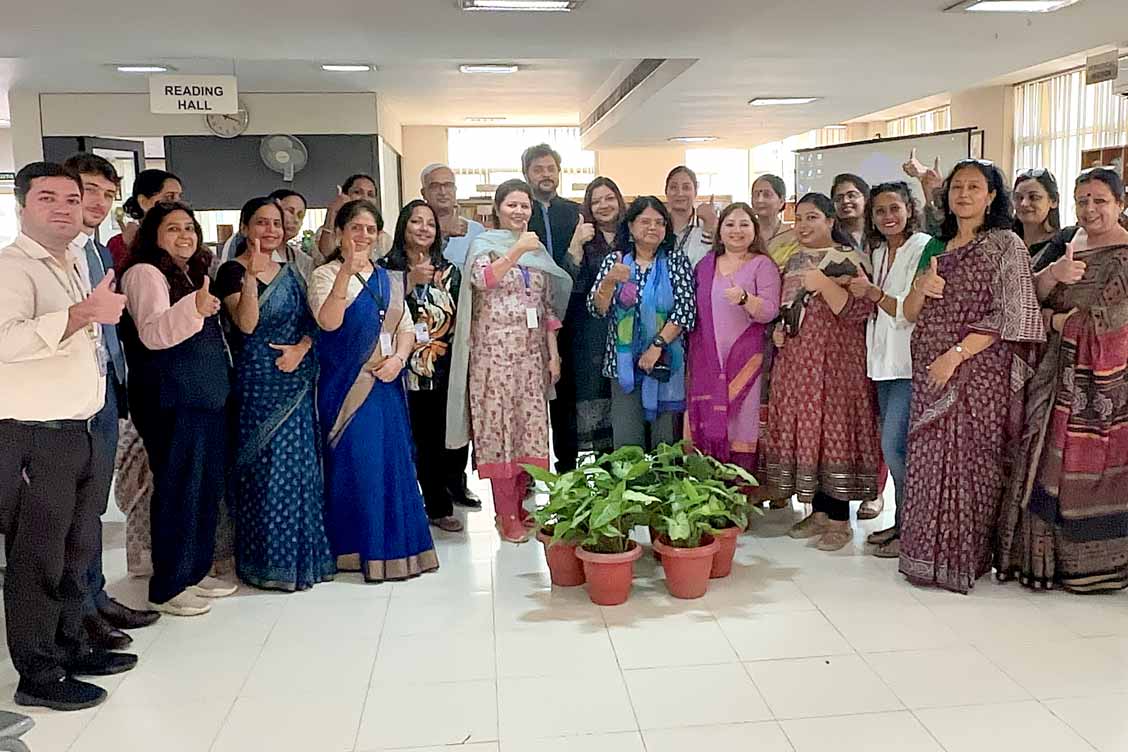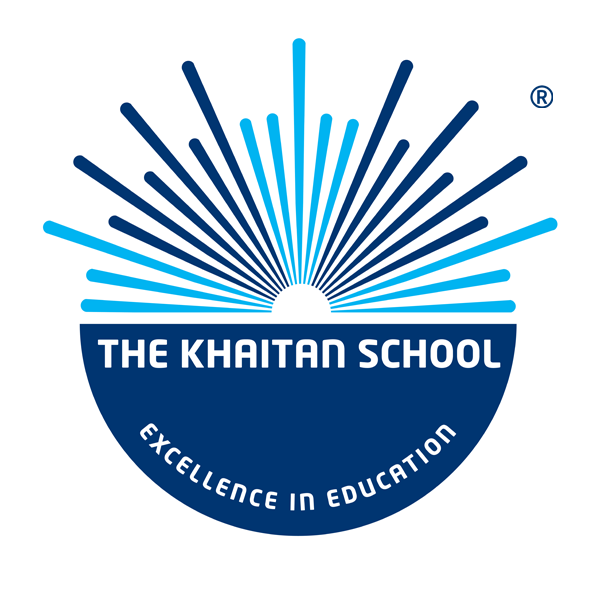On Saturday, 21 September 2024, Ms. Geetanjali Sharma and Ms. Shifa Nizami of the Social Science Department attended the educators’ round table conference hosted by The United Nations Office on Drugs and Crime (UNODC) with the initiative of Riseup4Peace and Kothari International School on the topic Mainstreaming Education on Peace, Global Goals and the Rule of Law in classrooms’ focused on the critical intersection of education, Sustainable Development Goals (SDGs), and crime prevention. It aimed to equip educators with the necessary tools and knowledge to foster impactful initiatives within schools, aligning with the goals outlined in the National Education Policy (NEP) 2020.
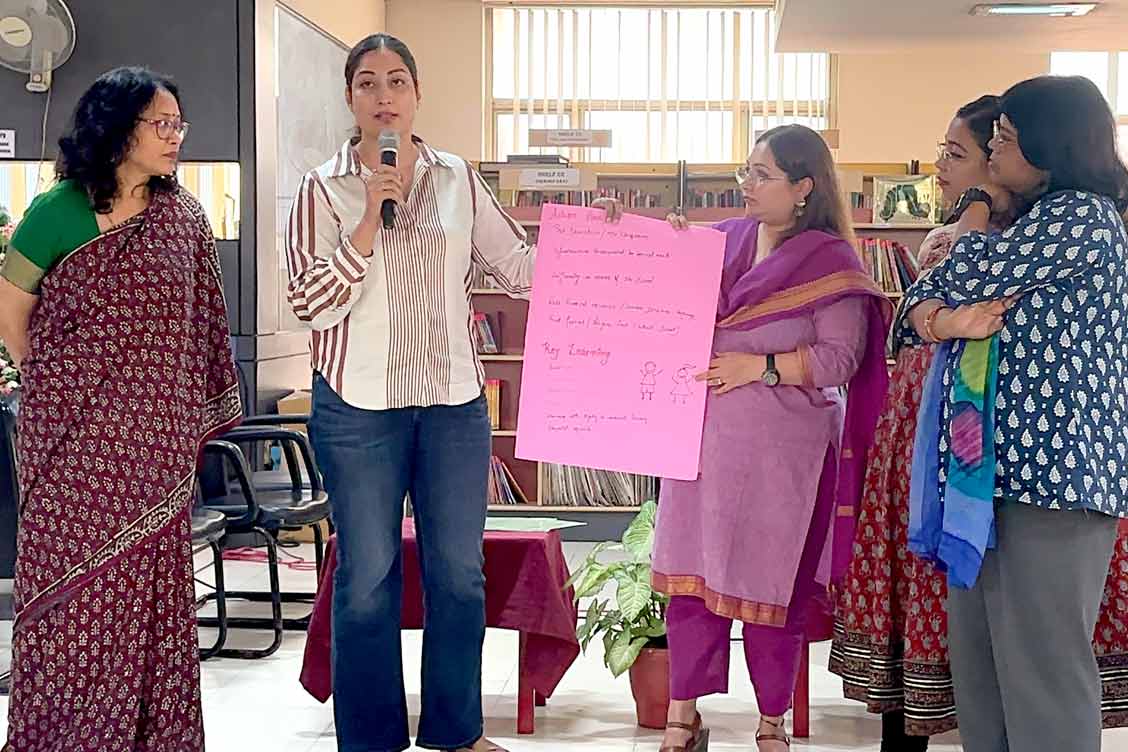
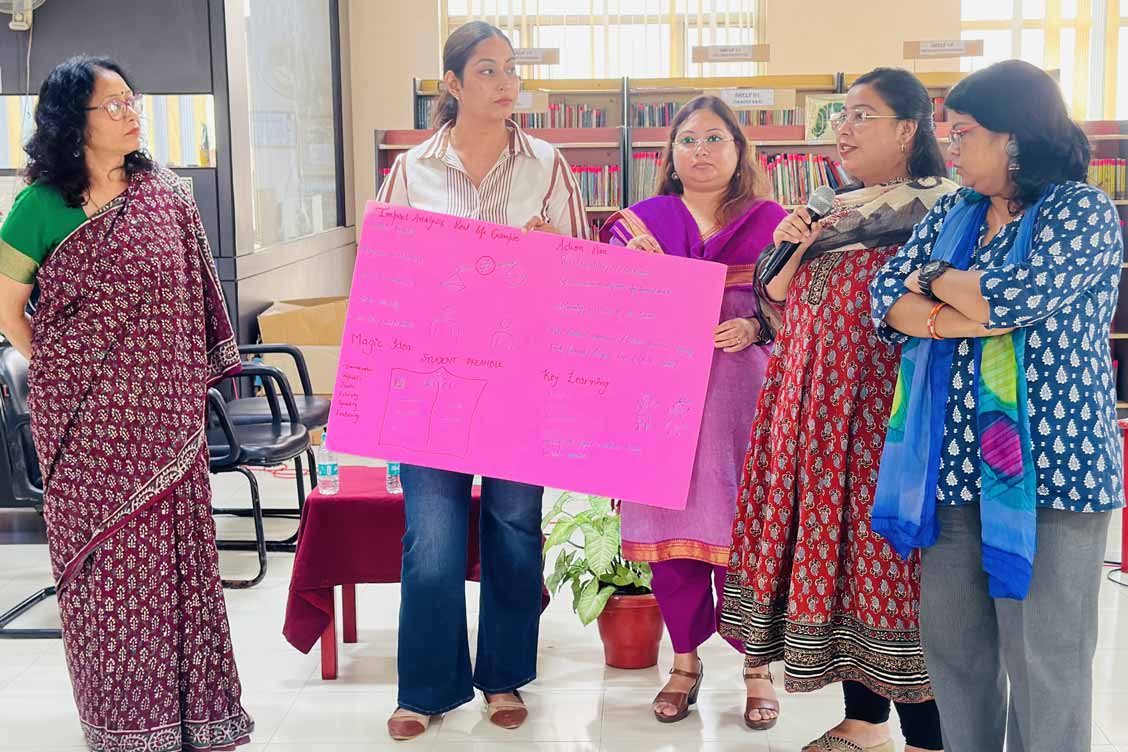
The sessions began with an introduction by Ms. Deepti, HOD Social science of Kothari International School followed by an address by the Principal Dr. Sangeeta Arora who handed over the session to Mr. Samarth Pathak (UNODC’s Regional office in South Asia), who spoke on the importance of SDG 16 . He was followed by Dr.Satya Bhushan (Asst. Professor, International Relations Division, NCERT) who highlighted the provisions in the NEP 2020 Corresponding to the SDG 16.
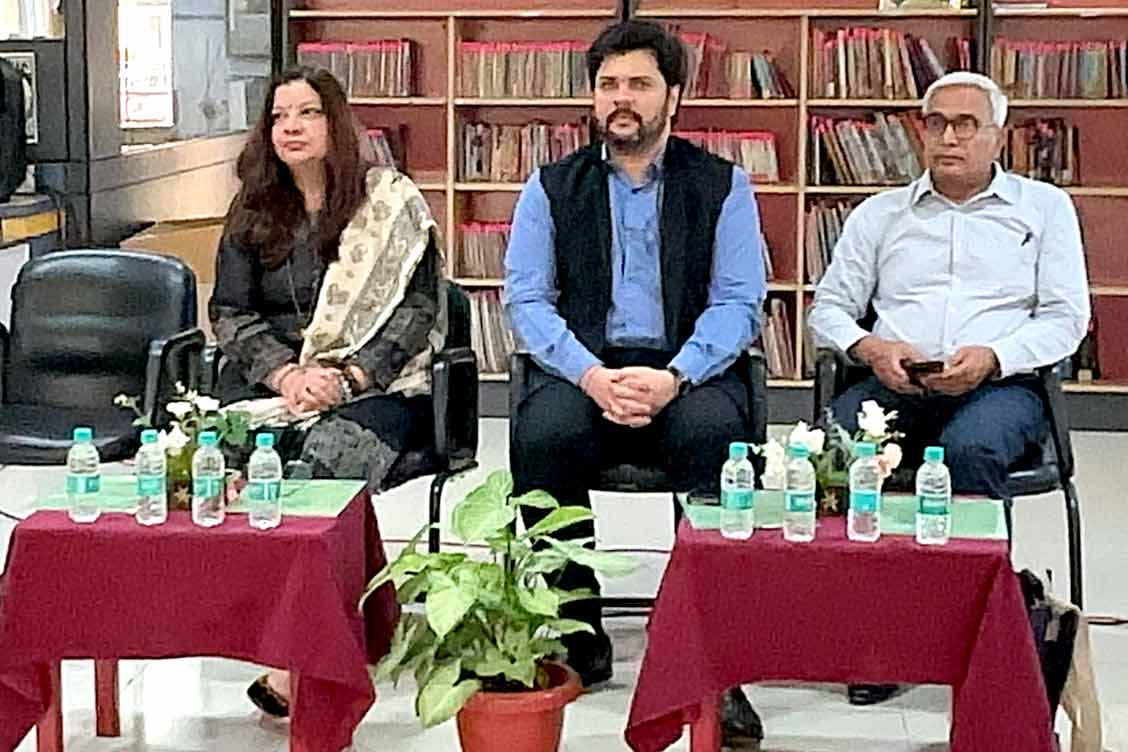
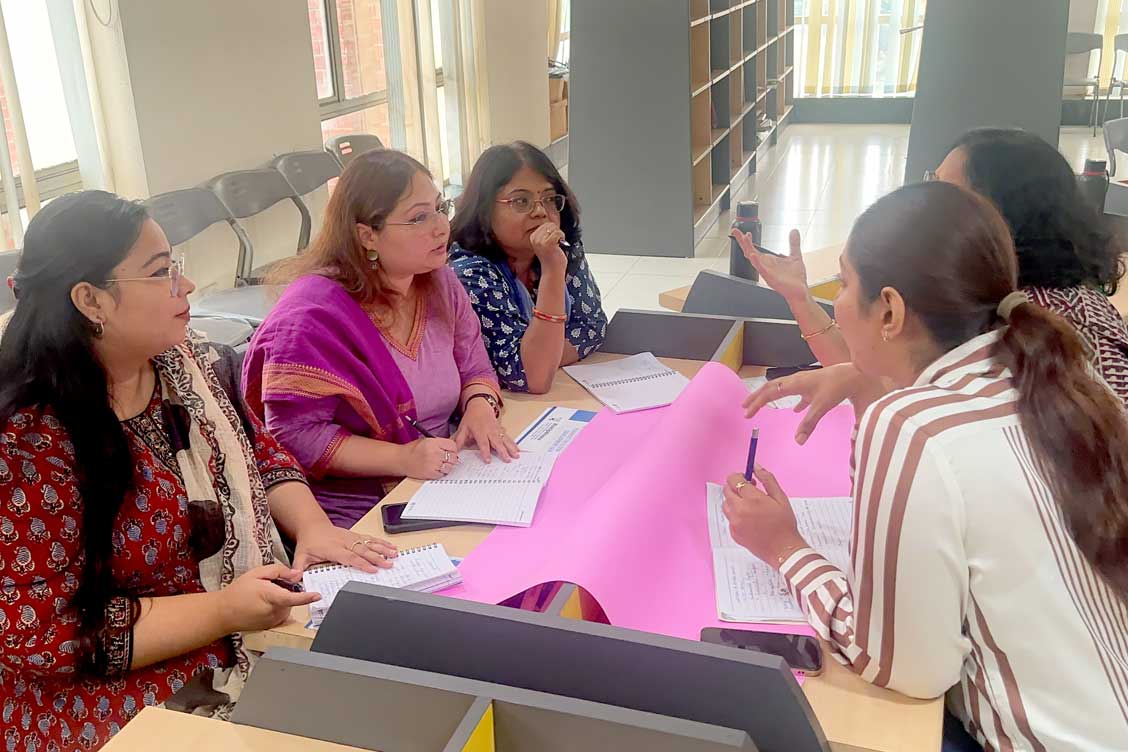
This was followed by a hands-on activity where the educators were divided into groups of 5 and each handed over a sub goal of SDG 16 to brain storm and present real life problems, an action plan, a magic solution and key learnings related to the sub goal.
Key Themes of the conference were as Follows:-
1. Understanding of Education on SDGs and Crime Prevention
The sessions highlighted the importance of integrating SDGs into the school curriculum, emphasising the role of education in promoting peace and justice (Goal 16).
Discussions explored how schools can serve as platforms for crime prevention by fostering a safe and inclusive environment for students.
2. UNODC Tools and Knowledge Support
Representatives from the United Nations Office on Drugs and Crime (UNODC) presented resources and tools available for schools. These included educational materials and programs designed to raise awareness about crime prevention and promote SDGs.
Collaboration opportunities with UNODC were outlined, encouraging schools to leverage these resources for enhancing student engagement and knowledge.
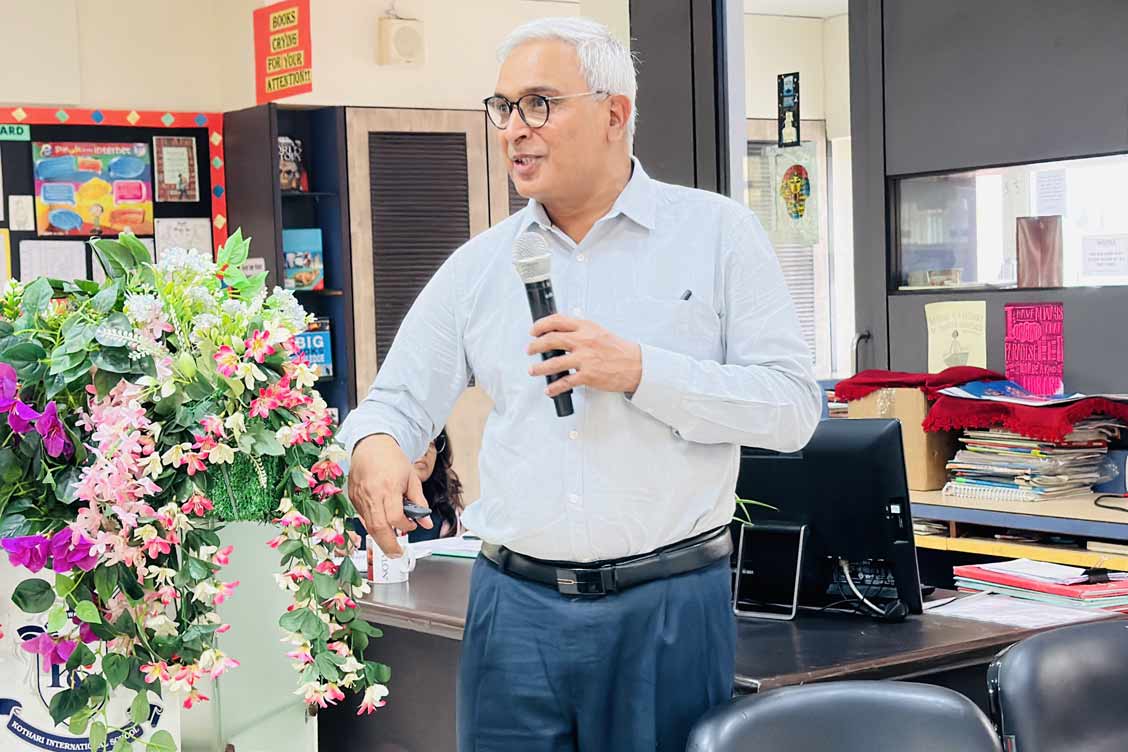
3. Practical Insights on School-Led Initiatives
Various impactful school-led initiatives were showcased, demonstrating practical applications of the SDGs in education. Examples included community service projects focused on environmental sustainability and student-led awareness campaigns on crime prevention.
The importance of aligning these initiatives with the NEP 2020 was emphasised, particularly in fostering holistic development in students.
4. Conducting Interventions in Schools
The conference provided insights on designing and implementing effective interventions within school settings. Best practices for curriculum development, teacher training, and student involvement were discussed.
Participants were encouraged to develop action plans tailored to their specific school contexts, ensuring that interventions are relevant and impactful.
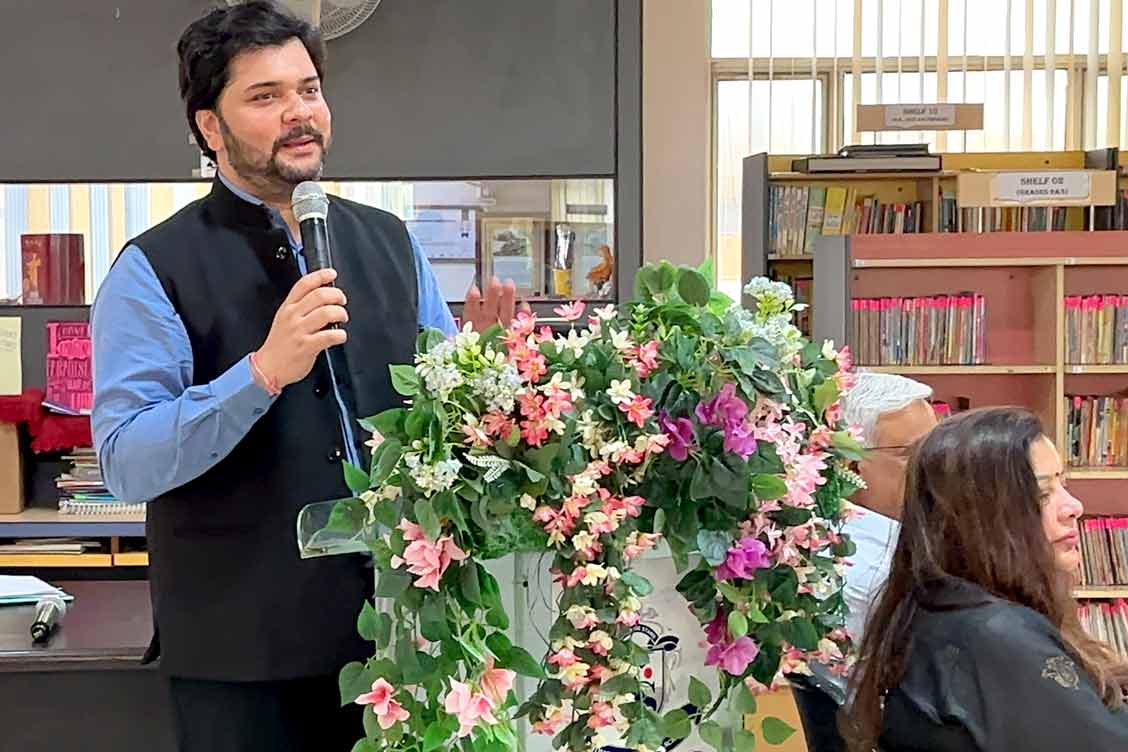
5. Cross-Learning and Cooperation
The event facilitated cross-learning among educators and policymakers, fostering an environment of cooperation. Attendees shared experiences and strategies for implementing school-focused initiatives.
Networking opportunities were created to enhance collaboration on future projects addressing education, SDGs, and crime prevention.
6. Policy and Programmatic Recommendations
Key recommendations included:
Integrating crime prevention education into the school curriculum.
Encouraging community partnerships to support school-led initiatives.
Promoting continuous professional development for educators in areas related to SDGs and crime prevention.
Establishing feedback mechanisms to assess the effectiveness of educational programs.
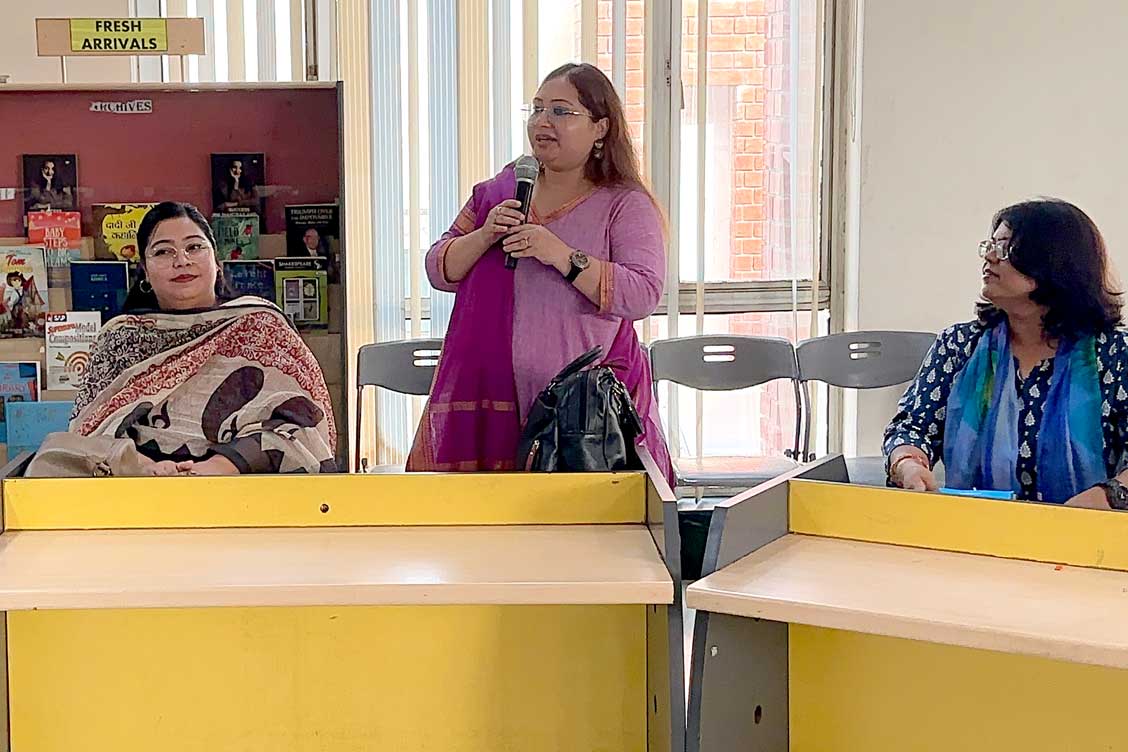
The conference at Kothari International School served as a vital platform for enhancing the understanding of education’s role in achieving SDGs and preventing crime. By sharing knowledge, resources, and practical insights, the event aimed to empower educators and policymakers to create meaningful change within their communities. The collaborative spirit and commitment to fostering a safer and more inclusive educational environment were evident among all participants.
Future initiatives will build on the discussions held, ensuring that the themes of education, sustainability, and safety remain at the forefront of school agendas.
